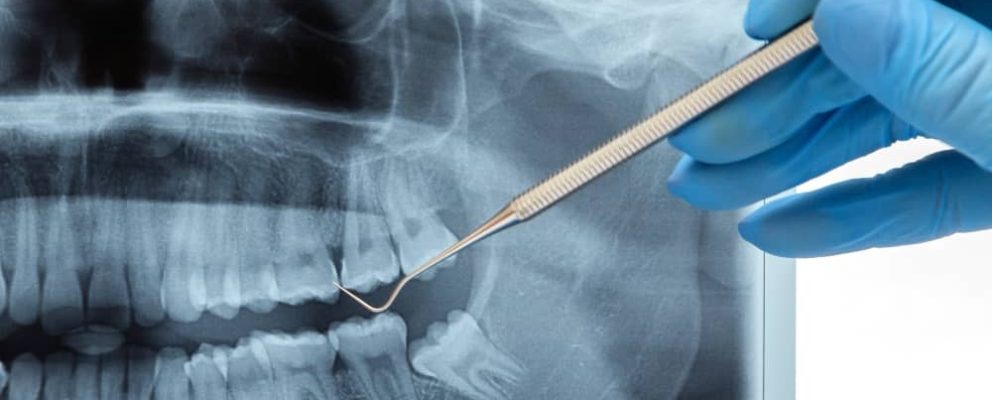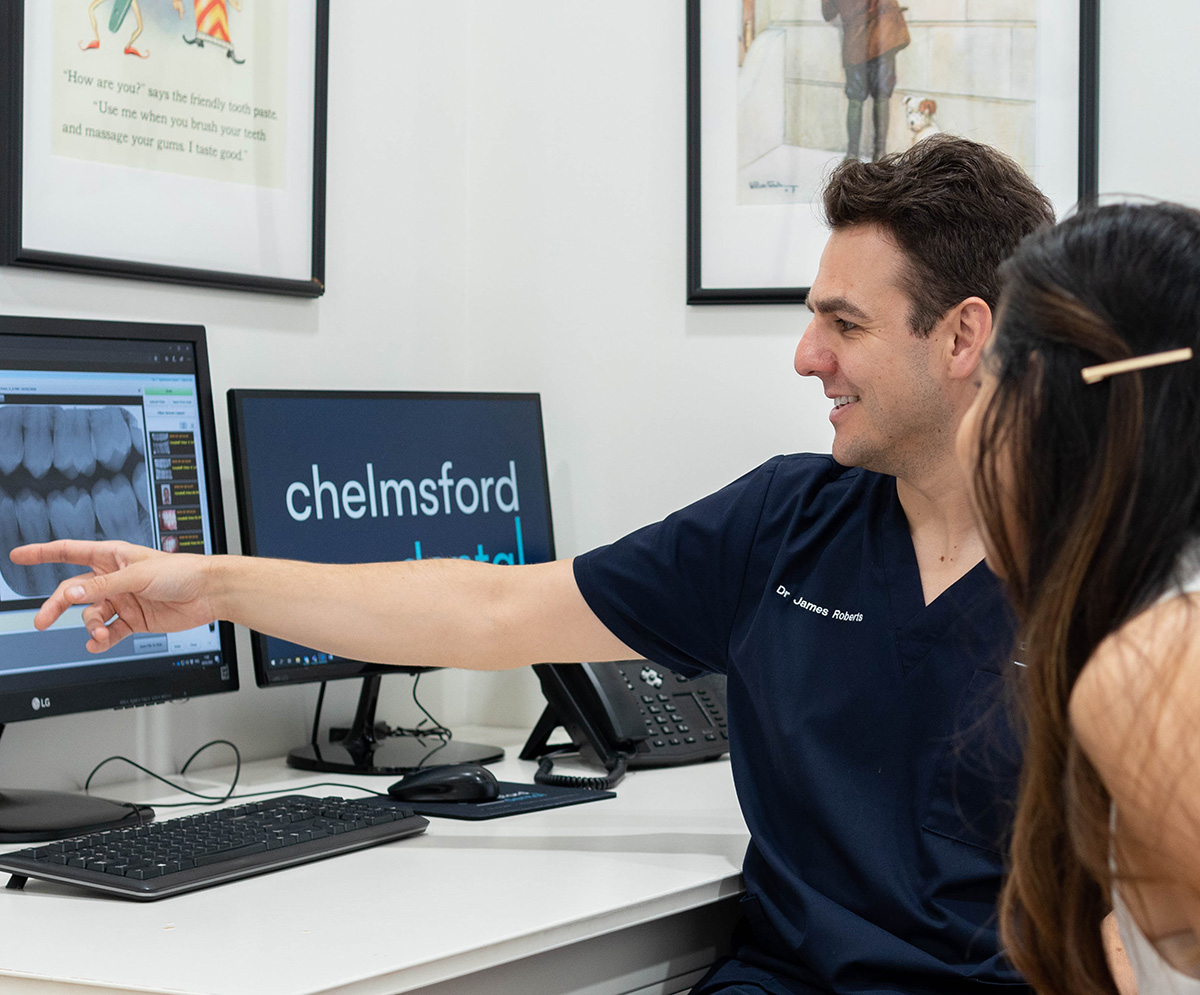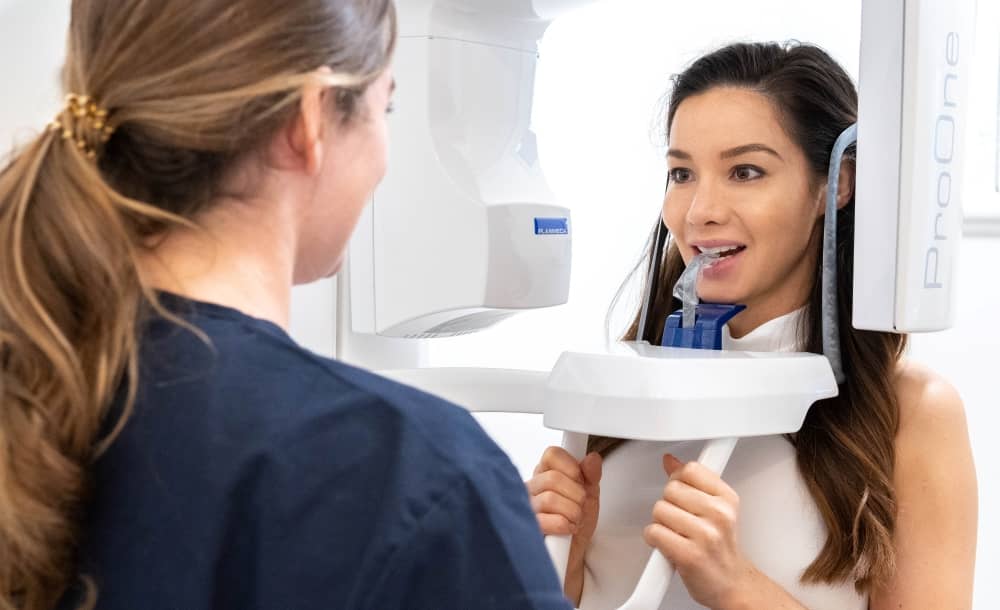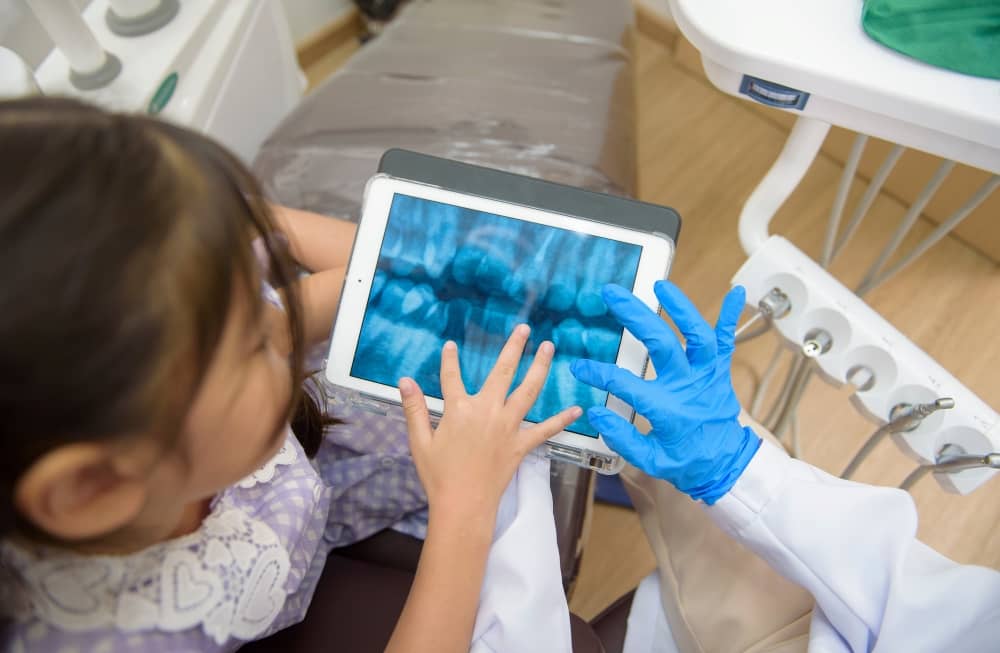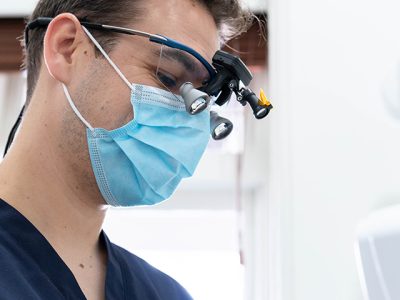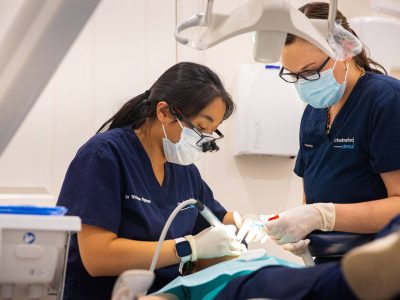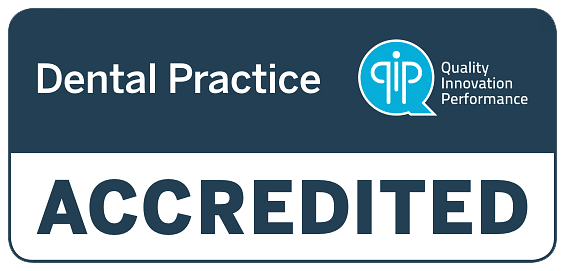‘How much radiation does a dental X-ray expose me to?’
‘Are dental X-rays dangerous?’
‘Are dental X-rays safe for children?’
We hear these questions often from our patients, and the concerns are completely understandable.
In this blog post, we’re here to educate you on everything you need to know about dental X-rays, including frequently asked questions about dental X-rays, common concerns about dental X-rays, and more.
Why Are Dental X-Rays Necessary?
Many oral health issues cannot be seen without X-rays, making dental X-rays one of the most important tools for maintaining good oral health.
Dental X-rays allow your dentist to detect gum disease and decay as early as possible, allowing for treatment that is as least invasive and inexpensive as possible.
For instance, when decay is caught early while it is still at the surface layer (the enamel) it is far easier to treat and usually only requires a simple dental filling. If tooth decay is missed early on and reaches the inner layer, the dentine, treatment will be more expensive, intricate, and costly.
What Are the Benefits of Dental X-Rays?
Dental X-rays are one of the key tools for supporting good oral health.
There are many benefits of dental X-rays, including:
- Detecting hidden cavities that cannot be seen with the naked eye
- Planning orthodontic treatments
- Detecting growth issues
- Assessing bone health
- Detecting abnormalities
- Detecting decay beneath dental fillings (unless the filling is an amalgam filling as the metal will block the x-ray)
- Assessing the severity of any decay present
- Determining the severity of an abscess
- Monitoring the progress of certain dental treatments
- Ensuring the least invasive and most cost-effective treatment options possible by catching oral health issues early
- Monitoring oral health issues
What Happens During a Dental X-Ray?
Dental X-rays are painless and typically only take a few minutes. They are generally performed by a licensed dental assistant or a dentist. A lead apron will be used to protect your body against radiation.
Pictures will be taken of your full mouth, or a specific area, depending on the reason for the X-ray. Your dentist will then use the images from the X-ray to assess your oral health and detect any problems.
How Often Do I Need Dental X-Rays?
General dental checkups are an essential part of maintaining good oral health. During regular dental checkups, your dentist will ensure your mouth is thoroughly cleaned and any plaque is removed.
Regular dental checkups also involve dental X-rays. A series of X-rays are typically taken once every two years, although they may be needed more often in some cases or if your dentist suspects an oral health issue.
Although the X-ray schedule is generally once every two years, patients with a history of tooth decay problems or individuals at high risk of certain oral health issues may require more frequent X-rays.
We only perform X-rays as necessary, so we assess each patient closely and only recommend X-rays when needed.
For example, if you come in for an appointment and are experiencing pain, we may use an X-ray to determine the extent of the issue and assess what is going
Here is a general schedule of how often Dental X-rays are needed:
- Children or Adolescents — X-rays are an important tool for ensuring your child’s permanent teeth are coming in properly. For children with a history of decay or cavities, X-rays may be recommended every 6 to 12 months. For children without a history of decay, X-rays are typically recommended every 1 to 2 years.
- Individuals with Dry Mouth — Dry mouth, also known as xerostomia, prevents the salivary glands from producing enough saliva. Saliva plays an important role in keeping your mouth and teeth healthy by supporting a healthy pH level and rinsing away debris.
A dry mouth can disintegrate important minerals in the mouth that prevent bone loss and cavities. Individuals with dry mouth may need X-rays every 12 to 18 months depending on their oral health history and the severity of their dry mouth.
- Adults with Teeth Restorations — If you have bridges, dental implants, fillings, or crowns, your dentist may recommend X-rays every 12 to 18 months to detect any underlying decay.
- Individuals Who Use Tobacco — If you smoke or use tobacco products, your dentist will likely advise more frequent dental X-rays to detect cavities or bone loss.
- Patients with Gum Disease — Severe gum disease can result in bone loss, making dental X-rays a crucial tool for detecting decay or bone loss as early as possible. As with many oral health issues, early detection can prevent significant complications and reduce the cost of treatment.
Are Dental X-Rays Dangerous?
Many patients worry about getting exposed to radiation from dental X-rays. Rest assured, these levels are closely monitored and the safety of dental X-rays has been thoroughly studied.
The Australian Dental Association (ADA) and the Australian Radiation Protection and Nuclear Safety Agency (ARPANSA) worked together to create a detailed fact sheet for patients wanting to learn more about dental imaging and radiation exposure.
As reported by the ADA and ARPANSA, “Radiation exposure from dental imaging is typically very low level, and the risk of negative health effects is minimal”. The Australian Dental Association adds that “you are exposed to far more radiation on a single domestic plane flight than from a dental X-ray”.
Click here to view their website for additional details or to download their 2-page resource.
If you still have concerns about the use of dental X-rays, ask your dentist if they use digital X-rays. Digital dental X-rays utilise significantly less radiation compared to radiographic X-rays.
Can Dental X-Rays Catch All Oral Health Problems?
While dental X-rays are an effective tool for detecting a wide range of dental problems, they do not reveal the inner pulp of the tooth or give much information regarding the gums.
If a patient is experiencing tooth pain, it is often an indicator of decay. If decay does not show up on an X-ray, it most likely indicates a problem with the pulp.
Are Dental X-Rays Safe for Pregnant Women?
The Australian Dental Association states that X-rays can be performed in any term of pregnancy. However, it may be recommended to take extra precautions during the first trimester. During this time, X-rays are typically performed for diagnostic reasons only, not preventative.
As stated by the Australian Dental Association, “During pregnancy, if you have not had a recent dental examination and there is a requirement for a dental x-ray then your fears should be allayed by Australian Radiation Protection and Nuclear Safety Agency (ARPANSA) guidelines which state that there is no need on radiation protection grounds to defer dental radiography during pregnancy.”
You can read more about the ADA’s statements on dental health and pregnancy here.
Are Dental X-Rays Safe for Children?
Regular dental visits are crucial for supporting your child’s oral health and detecting any tooth decay, damage, or cavities early. Regular dental X-rays are a key way of detecting these issues as soon as possible and ensuring your child’s teeth are developing properly.
Most digital X-ray machines allow settings to be adjusted for adults or children, allowing for a decreased dose of radiation. As with adults, we never expose children to unnecessary X-rays.
Do You Have Questions or Concerns About Dental X-Rays? We Are Here to Help
Dental X-rays are a crucial diagnostic tool when it comes to maintaining good oral health.
Getting dental X-rays according to your dentist’s recommendation is an important part of a good oral care plan for all age groups.
Dental X-rays can diagnose problems, detect tooth decay and cavities as early as possible, and detect underlying problems that may go missed otherwise.
At Chelmsford Dental, we use state-of-the-art equipment, including our X-ray machine, and we only use X-rays when necessary.
If you have questions or concerns surrounding dental X-rays, please do not hesitate to reach out to us. Our team is happy to put you at ease, answer your questions, and book a consultation where our dentist can let you know if you are due for X-rays or not.
